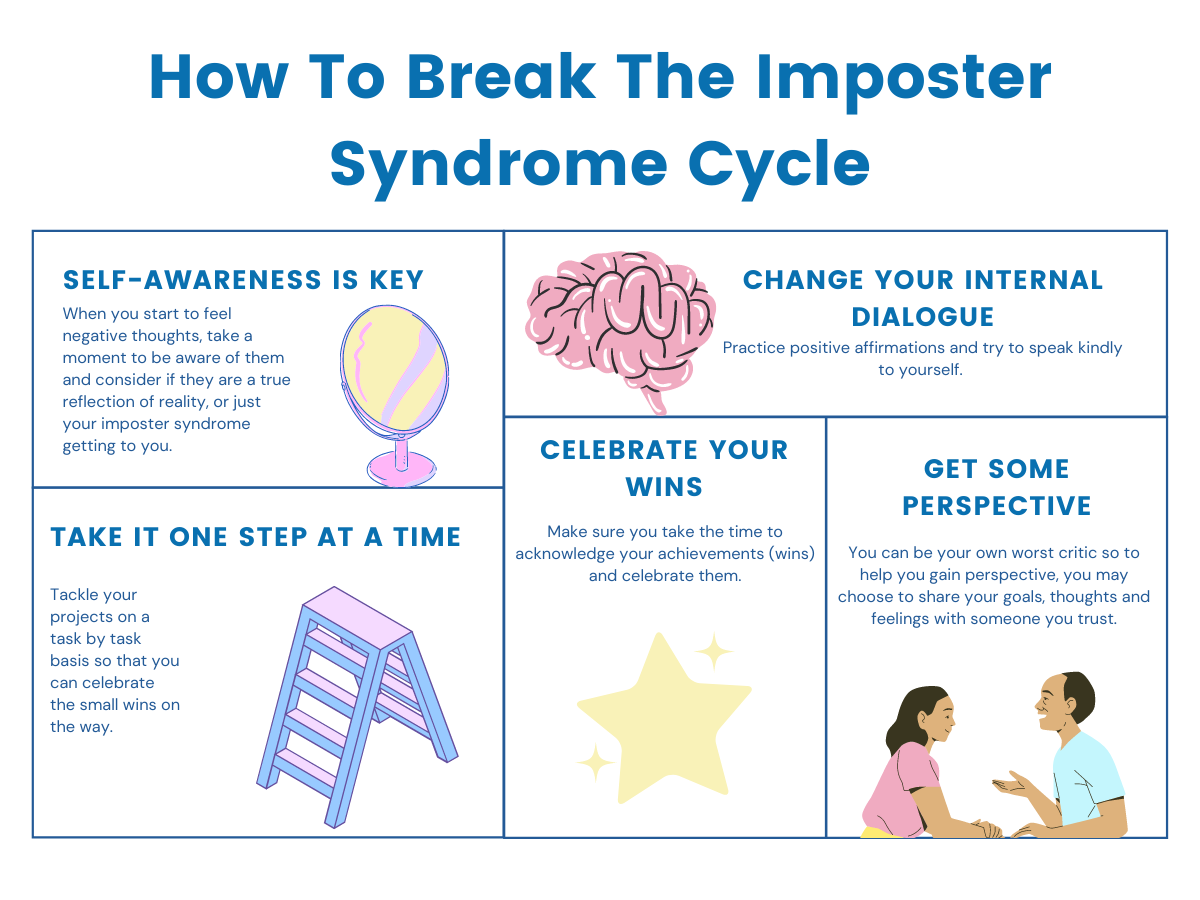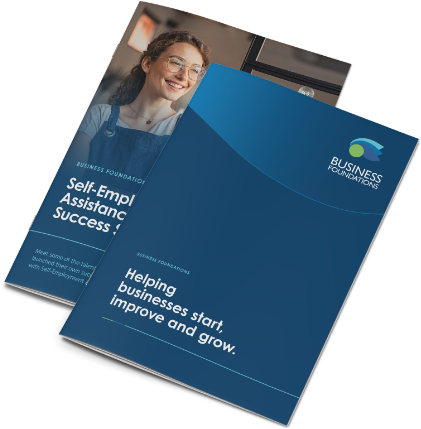Imposter Syndrome & Perfectionism: The Cycle
February 4, 2022
Many high achievers who are highly accomplished and successful, feel deep down that they are not as competent as others perceive them to be.
They doubt their skills, talents or accomplishments and have a fear of being exposed as “frauds”, despite evidence of their competence.
This psychological phenomenon, known as imposter syndrome, reflects a belief that you are inadequate and incompetent despite evidence that indicates you’re skilled and quite successful.
Even Natalie Portman, actress and Harvard graduate, has alluded to experiencing Imposter Syndrome.

Imposter Syndrome
You may experience Imposter Syndrome in certain life transitions like starting a new education venture or becoming ‘qualified’ in your field, leading others to treat you as if you are an expert in your field while you feel you have only just scratched the surface of the knowledge in your field of expertise.
Holding yourself to a high standard can lead you to success and productivity. On the flipside however, when those high standards become so high that they become unattainable (like “perfect or nothing”) you may associate the impossible goal with being incompetent in your work.
This mindset leads to a vicious cycle of self-doubt and fear of incompetence.

Perfectionism And Imposter Syndrome
Perfectionism and imposter syndrome often feed each other. Perfectionists set excessively high goals for themselves, and when they fail to reach a goal, they feel major self-doubt and worry that they are not good enough. After all, when perfection is the aim, everything will fall short and the focus is on what’s “wrong”.
Imposter syndrome-perfectionism cycle at work can manifest as overworking or over-preparing in a constant effort to achieve the un-achievable goal you might have set for yourself. This type of over-functioning can also present as difficulty delegating, fear of making a mistake, overanalysing, having trouble switching off and extreme attention to detail.
Another product of the Perfectionism-Imposter Syndrome may be under-functioning, manifested as procrastinating or missing deadlines. At times you may feel unable to complete something because it will simply never be ‘good enough’ or avoid tackling the project entirely because you doubt your ability to see it through.
For Perfectionists, success is rarely satisfying because they believe they could have done even better. This is neither productive nor healthy.

We chatted with one of our NEIS clients, Lexy Itskovich about how to level up your mindset and overcome the Imposter Syndrome-Perfectionism cycle.
Lexy is a qualified counsellor and physiotherapist with her own business, LEXdoit.
Self-Awareness Is Key
Becoming aware of your thought patterns and limiting beliefs is the first step to changing them.
Do you feel like your work must be 100% perfect, 100% of the time?
Do you agonise yourself for making a mistake? Or not doing enough?
What are you afraid of happening if you don’t set smaller, more realistic standards for yourself?
Taking some time for reflection and putting your thoughts to the test is a great way to see if others really expect that of you, or if it’s what you think others expect of you.
Openly exploring your thoughts and feelings around your work can help shine some light on your thought patterns, ease the unrealistic standards you may hold and remove some of the negative filters you carry about yourself.
Change Your Internal Dialog
What you tell yourself matters. Would you talk to a loved one the way you talk to yourself? Exercise talking to yourself as if you were talking to your best friend. What would you tell your friend if he made a mistake? Or if he struggled with feelings of incompetence in his work?
The message you tell yourself tends to reinforce how you feel, reaffirming that you don’t know what you’re doing or that you need to achieve something specific to prove yourself is probably not going to make you feel any better.
Instead try telling yourself that you are good enough as you are, that you can only show up and do your best in the moment and, in fact, being imperfect is what makes you human.

Take It One Step At A Time
When you face a big project it’s very easy to feel overwhelmed and let the anxiety and fear of not doing it right settle in, causing you to procrastinate or avoid taking it on.
However, when you set small manageable tasks that you can easily accomplish you can create a sense of achievement for yourself. Every small win will propel you for the next task at hand allowing you to move forward with confidence and focus.
Celebrate Your Wins
The positive aspects of our lives tend to get less attention than the negative. In order to avoid burnout, find contentment in your work, and cultivate self-confidence, make sure you take the time to acknowledge your achievements (wins) and celebrate them.
You can create a list of your wins to revisit in moments of self-doubt or perhaps even compile your accomplishments of all sizes in your notes so you can access those whenever you’re feeling like you’re inadequate for the task at hand.
Get Some Perspective
You can be your own worst critic so to help you gain perspective, you may choose to share your goals, thoughts and feelings with someone you trust.
This can be a helpful practice to identify any irrational thinking, unrealistic goals you may have set up for yourself and receive the feedback you may need to stop your perfectionist mindset in its tracks.
This will also help you exercise more fairness in weighing up the evidence for your competence and success.

Acknowledgement Of Country
Business Foundations acknowledges the traditional custodians throughout Western Australia and their continuing connection to the land, waters and community. We pay our respects to all members of the Aboriginal communities and their cultures; and to Elders both past and present.
Victoria
The Commons
80 Market Street,
South Melbourne VIC 3205
admin@businessfoundations.com.au
Western Australia
Wesley Central
2 Cantonment Street,
Fremantle WA 6160
admin@businessfoundations.com.au


Get In Touch
Have a question or to find out how we can help you, please get in touch.






